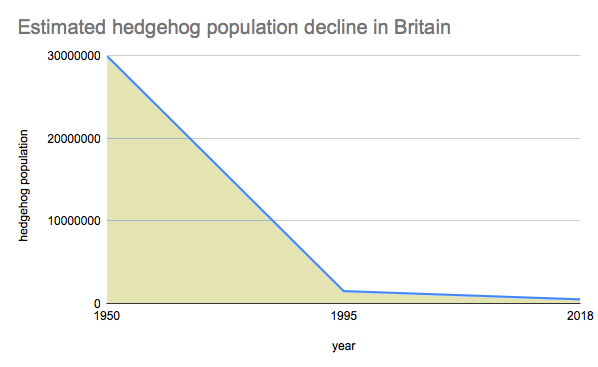How many hedgehogs?
It’s difficult to accurately measure hedgehog numbers, but all long term studies show a marked decline. Citizen science has provided much of the valuable data that tells us hedgehogs are in trouble, through records of garden hedgehogs and road kills.
It is thought that there were over 30 million hedgehogs in Britain in the 1950s, falling to 1.5 million in the 1990s. The UK Mammal society and Natural Englands’ 2018 study found the estimated number of Hedgehogs in Britain plunged by two thirds since 1995, with just 500,000 remaining. The British Trust for Ornithology published ‘The State of Britain’s Hedgehogs’ in 2011, collating several long term studies and estimating a decline of 25-40% between 2000 and 2010.
Why have hedgehogs declined?
– Their habitat has become increasingly fragmented due to more intensive agriculture, loss of hedgerows, permanent pasture and scrubby areas.
– Use of pesticides in agriculture and gardens, and the use of slug pellets destroy their food source and can poison hedgehogs.
– New developments disrupt habitat connectivity, and garden habitats have been lost to hard surfacing and impenetrable fencing.
There is hope
The decline in urban hedgehogs appears to have slowed, and there are signs that numbers may be increasing in some towns and cities. This shows the huge importance of rewilding our gardens and parks in the recovery of this species.
Click here to find out how you can help.



